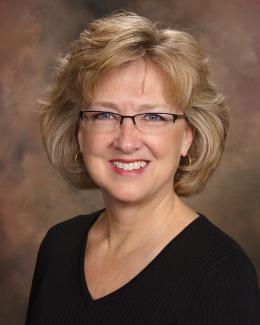The future of family science
In the December 2012 issue of Report, I discussed famology and a 2012 NCFR conference session in which Drs. Ganong, Gavazzi, Zvonkovic, Wilson, Sabatelli, and Day tackled the issues of family science's collective past, present, and future identity or lack of it; about our relevance or irrelevance; and about whether it's too late to lay claim to a field of study and discipline at the nexus of which is family. In the past few weeks I have immersed myself in the history of these issues as described in Report from the early 1980s, Family Science Review, Family Relations, and The Journal of Marriage and Family.
The recent issue of Family Relations (63:3 July 2014) includes articles by Raeann R. Hamon and Suzanne R. Smith; Jason D. Hans; and Stephen M. Gavazzi, Stephan M. Wilson, Lawrence Ganong and Anisa Zvonkovic about the family science discipline and department name trends across four decades which furthers the conversation on the future of the family science discipline.
Collectively these articles call for a continuation of the work suggested at the 1985 NCFR conference in Dallas, Texas, when NCFR members involved in this work voted unanimously to call this field of study "family science."
Further, the "future of the family science discipline task force" made three recommendations:
- The term, family science, be used to refer to the field of study where the primary goals are the discovery, verification, and application of knowledge about families.
- Students, faculty, and administrators in departments that use one of the names, such as family development, family studies, family ecology, family relations, etc., should give first priority to changing the names of the appropriate courses, majors, and programs to family science.
- Students, faculty, and administrators in the family-oriented departments should give second priority to changing the names of the departments to include the term family science. (In departments where family science is combined with child development, they may wish to have two components in the department name or to use the plural, family sciences.)
After years of work — which began when then NCFR President Wesley R. Burr gave his presidential speech at the 1982 conference in Washington, D.C., and Dr. Bert Adams appointed a task force for the development of a family discipline — a conclusion was reached and recommendations were made. Yet today, of the 131 department unit names that include the word "family" in the title, 55 use the noun studies, 42 use the noun science, and 34 departments use neither studies or science (Hans, 2014 Family Relations 63:3). Additionally, the title of one of NCFR's own journals remains Family Relations: lnterdisciplinary Journal of Applied Family Studies. Wither the work of this task force and its recommendations?
While I won't go into detail here, NCFR's membership has been flat for the past several years. We also have seen the number of family life education certifications remain at 1,500 over the past two to three years. When asked why they don't renew their NCFR membership or CFLE certification, the most common response is related to lack of jobs in the field. Further cited as a barrier to gain full employment serving families was a lack of awareness by employers of family as a discipline of study and area of expertise.
In a Report article from the early 1980s, Wesley R. Burr and Geoffery K. Leigh identified four problems facing the "field of Family Studies":
- A confused and ambiguous department identity.
- A lack of a clear professional identity that has graduates "fumbling for words" when asked to describe their professional identity.
- Invisibility on many college campuses where "we are relatively peripheral to the inner workings of most college campuses."
- A low status that is inconsistent with the "knowledge base that exists in the field and the value of the contribution we can make to students and society ...."
A particularly poignant statement in this article references the work of family scholars and practitioners from 1930 forward: "We think that it is past time when a discipline is organized around the equally central family institution .... lt would be christening some thing that was born long ago."
By the time you read this, the inaugural three-day meeting of the Future of Family Science Task Force will have already occurred. I invited members who have continued to raise issues related to the visibility and viability of family science and whose passion about the value of our work to humankind drives them to continue the work begun by Burr, Groves, Leigh, C. Marshall, J. Schvaneveldt, and others. We will need many members to continue the work begun in the 1980s. Please let me know if you are interested in being a part of the future of family science task force. There will be ample opportunity to apply your passion, knowledge, and skills to this worthy cause.


